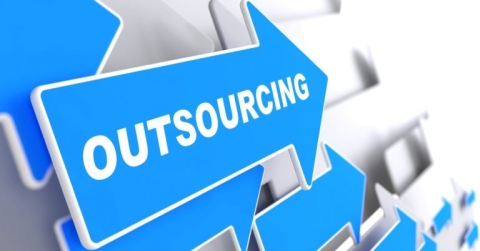Outsourcing: Help Is on the Way

By Leslie Thornton
Associations and other nonprofit executives face numerous challenges as they seek to allocate resources, time and staffing while also trying to create dynamic events that provide value for attendees, sponsors and other stakeholders. In many cases, these executives are turning to experienced external sources to handle specific functions, roles or even entire events.
In fact, 81 percent of association executives said they are currently outsourcing key functions such as graphic design and multimedia, membership technology and event strategy, according to a 2015 survey conducted by research firm Ipsos and commissioned by SmithBucklin Outsourced Services. The full survey results can be found here.
Further, survey respondents said they saw outsourcing as a way to achieve their organizations’ goals by acquiring specific skills, supplementing in-house staff and saving money. When asked what benefits they expected to achieve with outsourcing over the next two years, 70 percent of the association executives cited accessing specialized talent.
Outsourced functions include selling event sponsorships, managing organization finances, delivering marketing campaigns and developing year-round education strategies. This article (the first in a series) will focus on how to improve planning and executing conferences, meetings and tradeshows by leveraging outsourced partnerships to access specialized talent, acquire specialized skills, supplement in-house staff and increase revenues.
Accessing Specialized Talent
Having access to specialized talent outside an association’s current staff can provide the capabilities needed to better serve its members.
A large financial services organization wanted to update its event offerings for its annual expo to provide more value to attendees and add an additional revenue stream for the organization. The association partnered with an outsourced team of tradeshow experts to envision and create a designated area at the event that showcases physical demonstrations of innovative, next generation products and solutions that change the way the industry thinks about banking. The innovation showcase increased attendee excitement about the event, drove traffic to the show floor and attracted new exhibitors.
Acquire Specific Skills
Developing a new event, tradeshow or convention – or even revamping the annual meeting – is a challenge for any organization that has a finite amount of resources. Perhaps there’s a specific objective or a vague idea of how the event should look, but how does it all come together?
By reaching out for outside expertise, assistance may come in the form of event strategy, conference design, logistics, site selection, attendee experience enhancement, housing management, registration and fundraising.
For example, a technology solutions organization wanted to launch a new event, including a trade show expo, in just 12 weeks. The organization’s staff and its outsourced partners collaborated to shape the vision into reality by setting a tactical timeline and focusing on priorities. Besides the logistical arrangements, the team developed an event flow plan, created buzz through a redesigned website and other marketing tools, and launched a mobile app. More than 2,000 people attended the event.
Supplement In-house Staff
Event planning and execution require a team of people to handle everything from high-level strategy to tactical logistics. By outsourcing some of these operational requirements, an association executive can focus more attention and resources on member programs, industry issues and other efforts that deliver value to members. Additionally, the executive will have specialized experts on hand to help solve problems and develop new opportunities.
For its 2015 fall event, INCOMPAS (formerly COMPTEL) put in place new approaches that resulted in one of its highest revenue events in 10 years. To make that happen, INCOMPAS – the leading trade association representing communications and technology companies that provide broadband communications products and services to businesses and residential customers – analyzed its registration history, pricing approach, fixed overhead and per-person cost, and determined it needed to update its financial model. The event professionals serving INCOMPAS used this information, as well as data about attendee needs and industry trends, to recommend and implement new registration categories, price adjustments, and updates to sponsorship and exhibit packages.
Rev Up Revenues
Increasing event revenue is often one of the central needs of an association. By bringing in an outsourced services team with innovative ideas, the organization can build a strategy that not only opens up new revenue streams for the event but provides opportunities for continued revenue growth for the organization throughout the year and beyond.
Three years ago, the American Organization for Nurse Executives outsourced all aspects of its event. The outsourced team helped AONE achieve event growth through redesign and reinvention by creating customized sponsorship packages, connecting with potential attendees through social media outreach, and more. These efforts resulted in a 51 percent increase in event revenue during the past three years. With the assistance of the outsourced team, the AONE staff is able to focus on providing its members with critical resources for professional development, as well as access to the latest industry news and trends.
As the survey showed, the need for outsourced services is extensive. Association executives realize they cannot hire and employ every talent they need to deliver against the important work of their organization. By outsourcing solutions for specific needs, they can ensure that their organizations thrive while serving the best interests of their members.
Leslie Thornton is vice president of SmithBucklin Outsourced Services. Email her at [email protected].


Add new comment